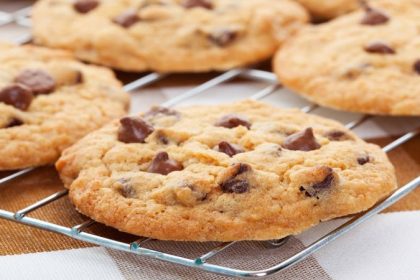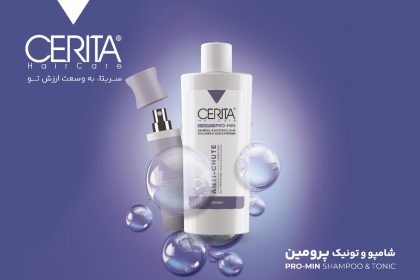Taking care of hair and maintaining their health requires paying attention to certain principles that must be paid attention to on a continuous basis. In addition to the harmful effects of air pollution, sunlight, contact with high-quality detergents, proper nutrition, and the use of certain drugs on hair health, humidity will also cause serious damage to the hair structure in many cases. You may have gone to bed many times after taking a bath and washing your hair without paying attention to drying them properly due to being too tired and not having enough energy to dry your hair. Meanwhile, sleeping with wet hair will have significant consequences.
If sleeping with wet hair becomes a habit for you, in the long run you will see signs of serious and significant damage to your hair. But what are the side effects of sleeping with wet hair and how can they be reduced? In the rest of this article, we will examine the reasons why it is necessary to avoid sleeping with wet hair and we will mention the tips that will help you to dry your hair standard.
Why should we not sleep with wet hair?
As mentioned, the effect of moisture on hair in many cases leads to complications and serious problems. To prevent these damages in your hair, you must pay attention to drying your hair after bathing. In the following, we introduce the most important side effects of not drying the hair.
Hair drying and dandruff
When you lay your head on the pillow without drying your hair, a significant part of the essential fat of the hair will be transferred to the pillow and your hair will lose this amount of useful oil. Decreasing the essential fat of the hair causes dryness and brittleness in the strands and hair shafts.
When the fat in the hair shafts decreases, the bacteria that exist on the surface of the scalp and hair strands accelerate the development of dandruff. Dandruff production not only causes annoying itching and inflammation, but also gives an unpleasant appearance to the hair and reduces the beauty of the hair.
Read on Moten’s blog: definitive treatment of dandruff with five wonderful products
Brittleness of hair strands
Wet and moist hair are weaker than dry hair and their vulnerability is much higher, so your wet hair is easily broken and damaged due to environmental pressures.
Although the heat of the hair dryer or the ions and static electricity that come into contact with the roots and stems of the hair dryer as a result of the blow speeding up the damage in the hair, this does not mean that sleeping with wet hair is less harmful than drying the hair. It has a hair dryer. When you put your head on the pillow with wet hair, the friction of the pillow with the hair in a state where your hair is weak and vulnerable, leads to serious damage to the hair strands and provides the basis for frizz.
Roughness and formation of knots in the hair
When you use a hair dryer to dry your hair and comb your hair at the right time, the level of hair flexibility will increase and its natural shape will be maintained. Meanwhile, sleeping with wet hair causes the strands of hair to get tangled with each other and the hair becomes frizzy and rough.
In this way, it is necessary to spend more time and energy to return the natural state to your hair. In addition, the tying of hairs together makes it harder to comb the hair, and during combing, some hair medicines are separated from the roots, which increases hair loss and weakening of the roots.
Increased hair loss
As mentioned, wet hair is more fragile and vulnerable, and that is why combing wet hair will increase hair loss. Dry hair, frizzy hair, knots, eating hair, and the occurrence of fungal and bacterial infections along with the stretching of hair strands as a result of friction with the pillow accelerate hair loss.
Hair loss reduces self-confidence and is unpleasant for everyone. Read the methods of treating hair loss in traditional medicine on Moten’s blog.
Occurrence of bacterial and fungal infections
Fungi and bacteria grow and multiply rapidly in warm and humid environments. Sleeping with wet hair makes the moisture of the hair come into contact with the pillow and the heat of the head and face create a suitable environment for the growth of bacteria and fungi. If you suffer from bacterial and fungal infections due to sleeping with wet hair, you may transmit these types of diseases to other people, so it is necessary to protect your health and those around you, do not go to bed before drying your hair.
Incidence of cold and headache
One of the most important behaviors that cause colds and headaches is neglecting hair drying. Hair moisture needs heat to evaporate, and this heat is taken from the surrounding air and also from your skin. Therefore, the risk of catching a cold will increase as a result of sleeping with wet hair. It is better to go to bed after drying your hair to avoid colds and headaches, especially on cold days of the year.
causing pimples and acne
Bacteria that have accumulated on the pillow fabric due to humidity and heat are easily transferred to the skin of the face, and this issue will be the basis for the appearance of pimples and acne on the skin. Therefore, sleeping with wet hair not only causes damage to the hair, but may also cause problems for the health and beauty of the facial skin.
How to reduce the effects of sleeping with wet hair?
In order to minimize the effects of sleeping with wet hair, you can include the following methods in the agenda:
Tying or braiding hair
In order to reduce the side effects of sleeping with wet hair and give a beautiful shape to your hair, you can tie your hair in a tomato shape on top of your head or braid it. Of course, these actions should also be done after getting the hair wet while the hair is still wet.
wear a scarf
So that the friction between the hair and the pillow does not lead to hair loss, use a cotton or silk scarf while sleeping to reduce the effects of sleeping with wet hair and prevent your hair from becoming frizzy.
Using a silk pillowcase
A silk pillowcase helps to reduce the friction between the pillow and the hair, and your skin does not lose all its moisture. Silk fabrics absorb less water and prevent the accumulation of bacteria.
Use of vegetable oils
Vegetable oils such as coconut oil and hazelnut oil reduce the amount of moisture absorption by the hair and by reducing the absorption of water by the cuticles, they prevent breakage and swelling in the hair shafts.

Important points of combing and drying hair
If you want to have healthy hair, remember these tips while drying and combing your hair:
- Do not comb and brush your wet hair and let 80% of the moisture in the hair dry and then start combing.
- Wash your brush or comb two to three times a week with soap and water.
- When combing your hair, keep your head down and comb the hair from the back of the neck to the forehead and then back from the forehead to the back.
- To make your hair soft and shiny, use cold water at the end of washing your hair.
- Comb your hair two to three times a day.
- To make your hair dry faster, divide it into small sections.
- After getting out of the shower, use soft towels or cotton cloths to dry your hair and place them on your hair to dry gradually.
- To dry hair with a hair dryer, set the device to low or medium speed or heat.
- So that the heat of the hair dryer does not damage the hair roots, hold it at a suitable distance from the hair and move it successively.
- Use heat protectants on your hair before using a blow dryer or other heat tools.
- So that your hair is not weak or frizzy, pull the towel or cloth on the hair with pressure and speed.
- Do not use the hair dryer until at least half of the moisture in the hair has dried, and do not expose completely wet hair to the wind or heat of the hair dryer.

Introducing softening and hydrating hair products for hair care
In the following, we introduce the best hair softening and hair moisturizing products:
Moringamo moisturizing mask for dry hair
This mask has a great effect on providing moisture to dry hair and can deeply moisturize hair strands and increase their softness and shine while preventing hair shafts from becoming frizzy and rough.
Babaria two-phase hydrating and strengthening spray
In the structure of this spray, argan oil and aloe extract are used, which helps to strengthen the roots and strands of hair while restoring damaged hair. The use of this spray prevents moles from fluffing up and speeds up their stateability.
Hydrating cream containing collagen and keratin
This cream is the best product for straightening frizzy hair and moisturizing dry hair, and due to the presence of keratin and collagen in its structure, it helps to condition hair and make it shiny. You can use this product to remove frizz and increase the combability of your hair.

Kaman hair bomb water contains collagen and keratin
Conclusion
Sleeping with wet hair has significant side effects that lead to various damages in the long term. To prevent fungal infections, frizz, hair loss, colds and headaches, it is necessary to dry and comb your hair according to the principles and tips mentioned in this article, and then go to bed. The products that we have introduced to you in this article are also helpful in hydrating and strengthening your hair, and you can include them in your hair care routine.
RCO NEWS

















